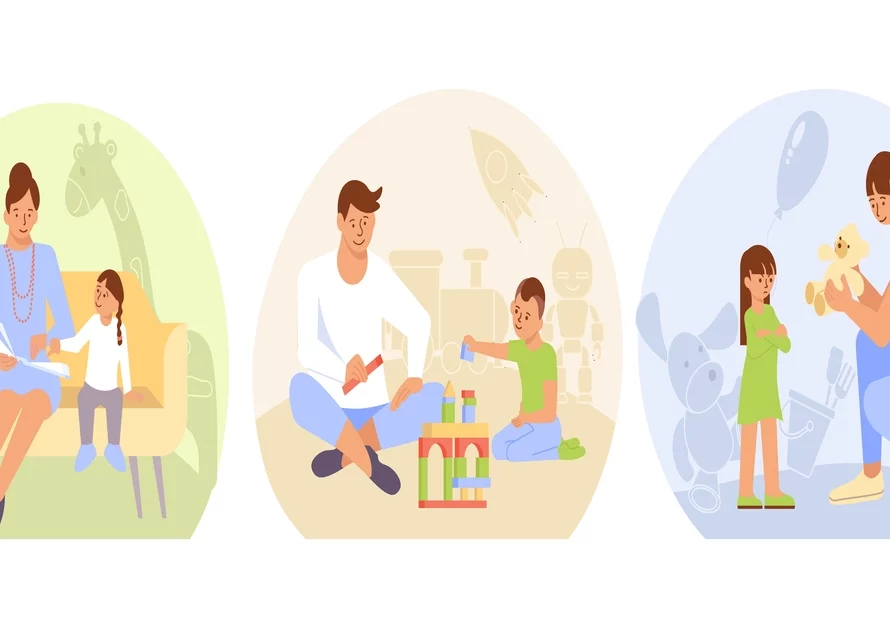Drug addiction is a complex yet treatable condition that affects brain function and behavior. The path to recovery often involves bumps, pitfalls, and setbacks, but this does not mean that treatment is futile. So what is the treatment of drug addiction?
This comprehensive guide aims to shed light on the various aspects of drug addiction treatment. It explores different treatment methodologies, the role of counseling, and rehabilitation centers, and the importance of mental health in the journey to recovery.
Read more to get further details.
What is The Treatment of Drug Addiction?

Drug addiction is a serious and complex condition that affects millions of people worldwide. It is characterized by an uncontrollable urge to seek and use drugs, despite the harmful consequences it may bring. Overcoming drug addiction requires much more than just willpower; it takes extensive treatment and support from healthcare professionals, family, and friends.
The treatment of drug addiction is a complex process that involves a variety of approaches and techniques. It typically includes a combination of medical, psychological, and social interventions to address the physical, mental, and behavioral aspects of addiction.
In addition to medical treatment, psychological interventions play a crucial role in the treatment of drug addiction. These can include individual therapy, group therapy, and family therapy.
The main forms of treatment include:
- Medications
- Behavioral therapies
- Residential or inpatient treatment
Medications for Drug Addiction Treatment
Medical treatment for drug addiction often involves detoxification, which is the process of removing drugs from the body and managing any potential withdrawal symptoms.
This can be done in a hospital or specialized treatment center, under close medical supervision. Medications may also be prescribed to help reduce cravings and manage withdrawal symptoms. They work by targeting the brain’s reward system, which is often disrupted by chronic drug use.
Some commonly used medications for drug addiction treatment include:
- Methadone: A long-acting opioid agonist that helps reduce withdrawal symptoms and cravings for opioids.
- Naltrexone: An opioid antagonist that blocks the effects of opioids in the brain, reducing the desire to use them.
- Buprenorphine: A partial opioid agonist that can help with detoxification and maintenance therapy for opioid addiction.
Behavioral Therapies for Drug Addiction Treatment
Behavioral therapies are essential components of drug addiction treatment. They help individuals understand their motivations, triggers, and thought patterns that contribute to drug use. The goal is to develop healthier coping mechanisms and behaviors to avoid relapse.
Some common behavioral therapies used in drug addiction treatment include:
- Cognitive-behavioral therapy (CBT): This therapy helps individuals recognize and change negative thoughts and behaviors related to drug use. It also teaches effective coping strategies to manage cravings and avoid relapse.
- Motivational interviewing: A counseling technique that helps individuals find the motivation to make positive changes in their behavior. It focuses on increasing self-awareness and personal responsibility.
- Contingency management: This therapy uses positive reinforcement, such as rewards or privileges, to encourage individuals to stay drug-free. It can also help reinforce other positive behaviors, such as attending therapy sessions or complying with medication regimens.
Residential or Inpatient Treatment for Drug Addiction
Residential or inpatient treatment involves living at a treatment facility for a certain period, usually ranging from 30 to 90 days. This type of treatment is recommended for individuals with severe addiction or those who have not had success with other forms of treatment.
Residential treatment offers a structured environment where individuals can focus solely on their recovery without outside distractions. It also provides comprehensive care, including medical and mental health services, to address all aspects of addiction.
Steps to Recovery
While the treatment of drug addiction may vary depending on individual needs and circumstances, there are some general steps that most individuals will go through in their journey to recovery:
Assessment and Intake:
This is the first step in the treatment process, where a healthcare professional will evaluate to determine the extent of drug addiction and recommend appropriate treatment. This may include a physical exam, laboratory tests, and psychological evaluation.
Detoxification:
The second step is to rid the body of any drugs or toxins. This process may involve medications to help manage withdrawal symptoms and ensure safety during detox. It is the main step of addiction treatment.
Therapy and Counseling:
After detox, the focus shifts to addressing the psychological aspects of drug addiction. Therapy and counseling sessions can help individuals understand their addiction, learn coping strategies, and develop relapse-prevention skills. It may also involve family therapy to address any underlying issues that may contribute to drug use.
Aftercare and Support:
Recovery from drug addiction is an ongoing process, and it is crucial to have a supportive network in place. Aftercare services, such as support groups or sober living homes, can provide ongoing support and help individuals maintain their sobriety.
Types of Treatment Methods
In addition to the main forms of treatment mentioned above, various specific treatment methods may be used in drug addiction treatment. These include:
- Group therapy: Participating in group therapy sessions can provide individuals with a sense of community and support from others who share similar experiences.
- Art or music therapy: These forms of therapy can help individuals express their emotions and cope with stress creatively and therapeutically.
- Holistic therapies: These include practices such as yoga, mindfulness meditation, or acupuncture and can help individuals manage stress and improve overall well-being during recovery.
Prevention of Drug Addiction
Prevention is always better than cure, and this also applies to drug addiction. Some ways to prevent drug addiction include:
- Educating individuals about the dangers of drugs and substance abuse.
- Creating a supportive and safe environment for individuals, particularly children and adolescents.
- Promoting healthy coping mechanisms for managing stress or difficult emotions.
- Encouraging healthy lifestyle habits, such as regular exercise and a balanced diet.
- Providing access to mental health resources for those struggling with underlying psychological issues.
Do Treatment of Drug Addiction Worth?
The treatment of drug addiction is invaluable, as it not only improves the individual’s physical and mental health but also has a positive impact on their relationships, work, and overall quality of life. Seeking treatment for drug addiction can help individuals break free from the cycle of addiction and lead fulfilling, sober lives.
So, if you or someone you know is struggling with drug addiction, do not hesitate to seek help and support from healthcare professionals and treatment facilities. Recovery is possible, and it starts with taking that first step towards seeking help. Together, we can overcome drug addiction and create a healthier, drug-free society for all.
Conclusion
Drug addiction is a complex and chronic disease that requires comprehensive treatment and ongoing support. So what is the treatment of drug addiction? With the right combination of therapies, individualized care, and a strong support network, individuals can recover from drug addiction and lead fulfilling lives.
Remember, seeking help is a sign of strength, not weakness. So seek help now and lead a healthy and meaningful life.
FAQs
Some of the frequently asked questions are mentioned below:
What is the meaning of drug treatment?
Drug treatment refers to the process of addressing drug addiction through various methods such as therapy, medication, and support services.
What are examples of drug treatments?
Some examples of drug treatments include medication-assisted treatment, behavioral therapy, and support groups. Other examples of drug treatments may include alternative or holistic therapies such as yoga or acupuncture.
What is treatment with example?
Treatment is the process of addressing a disease or disorder through various methods. An example of treatment for drug addiction could be a combination of therapies such as individual counseling, group therapy, and medication-assisted treatment.
How addiction affects the brain?
Drug addiction can have significant effects on the brain, altering its structure and function. It can disrupt the reward circuit in the brain, leading to a cycle of drug use and cravings.


